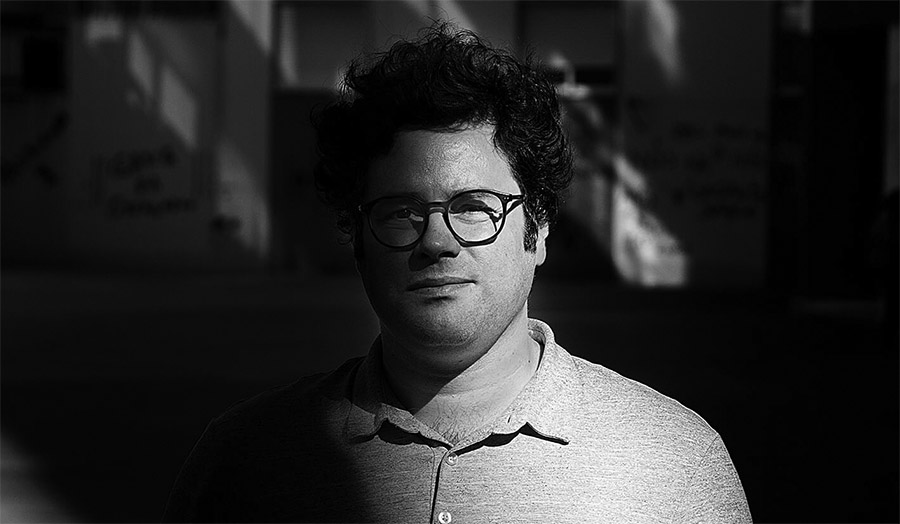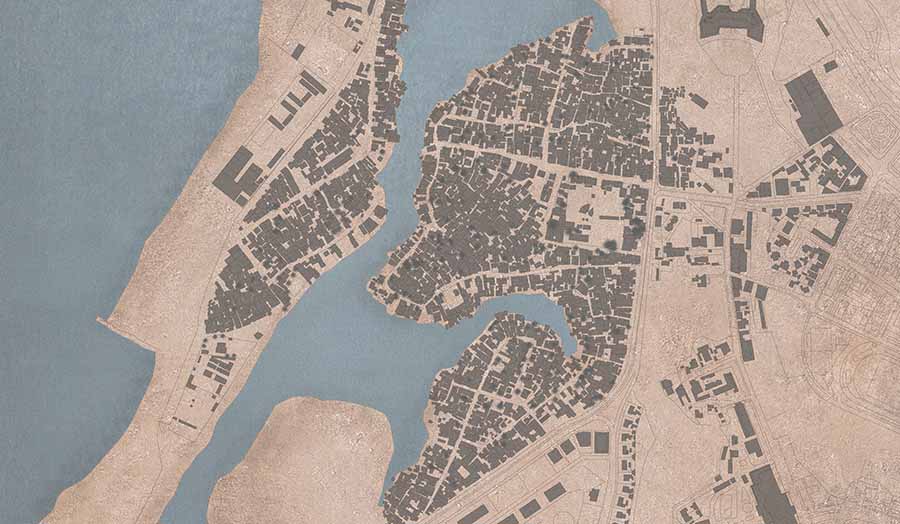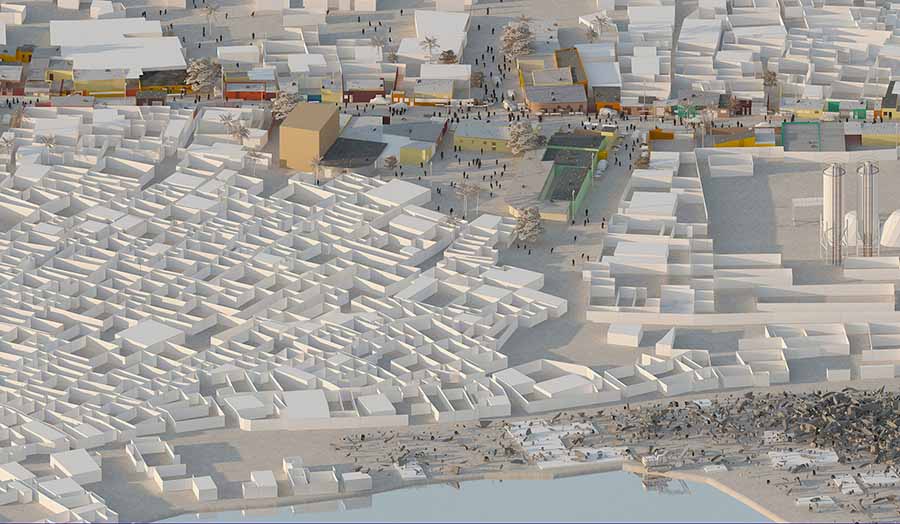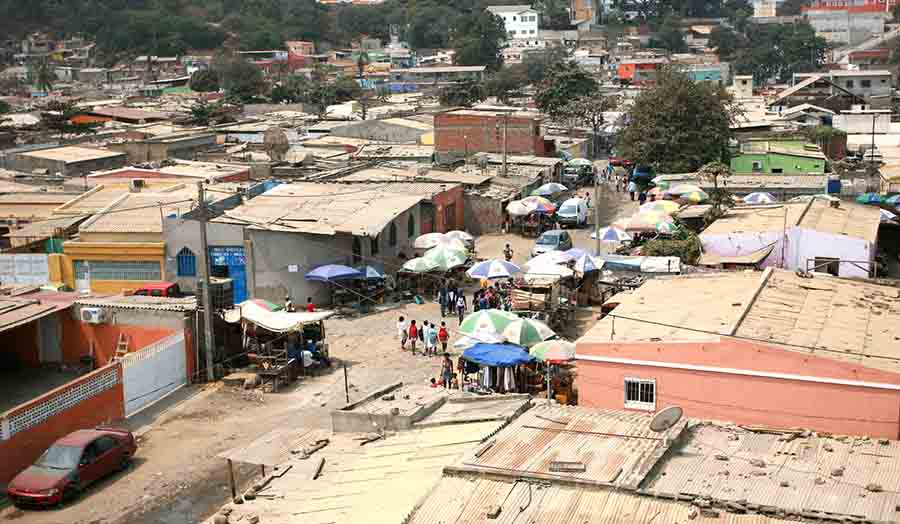Dr Paulo Moreira is a Portuguese architect, researcher and London Met PhD graduate. He completed his PhD at London Met on a full scholarship awarded by the Foundation for Science and Technology (Portugal). His collaborative research in Luanda (Angola) involves local residents, professionals and academic institutions.

Paulo Moreira
Dr Paulo Moreira is a Porto-based architect and researcher. He graduated from the Faculty of Architecture, University of Porto (Portugal), having also studied at the Accademia di architettura (Mendrisio, Switzerland). He received his PhD from London Metropolitan University in 2018. In the same year, he founded INSTITUTO, a focal point for different forms of cultural expression, located in the heart of Porto.
Moreira’s work is focused on contexts of urban conflict and social deprivation. He is the co-coordinator of The Chicala Observatory (Agostinho Neto University, Angola) and a post-doctoral fellow in the research project Africa Habitat (Faculty of Architecture, University of Lisbon), funded by FCT and Aga Khan Development Network.
He authored chapters in academic journals and edited independent publications on informal neighbourhoods. Moreira participated in La Biennale di Venezia (2014, 2016, 2021), Lisbon Architecture Triennale (2007, 2013) and the Oslo Architecture Triennale (2016, 2019). He was awarded several grants and prizes, including the Prize for Social Entrepreneurship (London Met, 2009), the Noel Hill Travel Award (American Institute of Architects - UK Chapter, 2009) and the Távora Prize (Ordem dos Arquitectos, 2012). He was a finalist in the RIBA President’s Award for Research 2019, Cities & Community category, and was awarded a Grant to Individuals by the Graham Foundation in 2021.
'This Neighbourhood is an Endangered Species' : Investigating urban conflict and reciprocity between Chicala and Luanda, Angola
Supervisors:
Dr Ines Weizman, Prof. Peter Carl and Dr Matthew Barac
Viva Chair:
Simone ten Hompel
Examiners:
AbdouMaliq Simone and Nabil Ahmed
Abstract:
At the heart of this thesis is an investigation of the reciprocal relationship between the city of Luanda and one of its central informal neighbourhoods, Chicala. The study situates Chicala among conflicts that have arisen in the urban densification process and their socio-political management, and in the context of a long history of natural formation. The particular geographical location of Chicala, along with its integrity and specific development, made the neighbourhood vulnerable to colonial invasions, and more recently to aggressive urbanism and large-scale masterplans.
In the context of Luanda’s current neoliberal trajectory of urban regeneration following a protracted civil war (1975-2002), Chicala is undergoing a process of demolition and replacement by high-standard real estate developments. The research began shortly before plans for the complete erasure of the neighbourhood were implemented and local authorities and private investors forcefully displaced its inhabitants to remote settlements with unsuitable living conditions.
The thesis aims to write Luanda’s urban history afresh by forging a place for the neighbourhood of Chicala and its wider context in the city’s urban order. Documentation of the characteristics of a neighbourhood on the brink of disappearing required a collaborative methodological approach, and a reflection of how architects can operate in such complex urban settings. The thesis aims to go beyond a mere exploration of informal architectural order; rather, it is a contribution to understanding Luanda, and to understanding postcolonial cities in general in their depth.
Analysis of a set of relationships between the neighbourhood and the city is presented in a chronology of six chapters. Each chapter emphasises the ‘hybrid’ nature of Chicala as part of a larger context, both in urban terms (autoconstruction, monuments and neoliberal form-fantasies are addressed as part of an urban continuum) and historically (precolonial, colonial and postcolonial periods are presented as part of an interconnected process).
The thesis concludes with remarks on the collaborative dimension of the research and the practices of ‘blurring’ it enabled. It is complemented by four Appendices, presenting a portfolio which complements the methodological approach: fieldwork reports, institutional documents based on the collaboration with Agostinho Neto University, and an extensive visual archive produced over the course of the research.
Books
- (2021, forthcoming). Critical Neighbourhoods - The Architecture of Contested Communities (ed.), Zuerich: Park Books.
- (2021, forthcoming). Luandando: O Gerúndio da Cidade, Lisboa: Antecâmara.
- (2021). Instituto - Yearbook’20, Porto: Tamanho Azul Associação. ISBN: 978-989-54539-2-4
- (2020). Instituto - Yearbook’19, Porto: Tamanho Azul Associação. ISBN: 978-989-54539-1-7
- (2019). Diluindo Fronteiras em Luanda - Um percurso pela cidade africana pós-colonial, Cadernos de Viagem Fernando Távora 2011-12, Porto: OASRN. ISBN: 978-989-54603-4-2
- (2019). News From Monte Xisto, Porto. ISBN: 978-989-54539-0-0
- (2014). Xikala - History and Urbanity of a Neighbourhood in Luanda, Luanda: Universidade Agostinho Neto. ISBN:978-989-20-5407-0
- (2014). Primeira Pedra - Monte Xisto (Laying the First Stone), Matosinhos: Câmara Municipal. ISBN:978-972-9143-77-9
- (2012). Chicala is not a small neighbourhood (ed.), Porto. ISBN: 978-989-20-2800-2
- (2011). The Second City: Studies on Porto & its Peripheries, London: LMU School of Architecture. ISBN: 978-0-9563532-2-1
Edited Journals
- Alter-Scapes #4: The Controversy of Practice, Matosinhos: Journal of the Porto Design Biennale, 2021
- Estudo Prévio #19, Lisbon: CEACT/UAL - Centro de Estudos de Arquitectura, Cidade e Território, Lisboa: Universidade Autónoma de Lisboa, 2021 (forthcoming)
Book Chapters
- Moreira, P (2021). "Understanding Informal Neighbourhoods: The Case of Chicala." In: Meuser, P (ed.) Architectural Guide - Sub-Saharan Africa, Berlin: DOM publishers.
- Moreira, P (2014). "Projecto Monte Xisto." In: Costa, P C, Allegri, A (eds.) Homeland: News From Portugal. Lisboa: Note.
- Moreira, P (2012). "Dossier / Practical Research." In: Revista ARQ/A # 103.
Articles
- Moreira, P (2021). Practices of Protest in Luanda, Angola: A Chronology of Recent Urban Change in Chicala. African Geographical Review, Abingdon: Taylor & Francis.
- Moreira, P (2021). Luanda’s Venice: The Paradoxes of Postcolonial Coastal Masterplans. Grand Projects - Urban Legacies of the late 20th Century, Lisbon: ISCTE.
- Moreira, P (2020). A condição híbrida da cidade africana pós-colonial: reciprocidade entre a Chicala e Luanda, Angola. Afro-European Cartography of Culture, Language and Arts, Lisbon: NOVA FCSH, African European Narratives.
- Moreira, P (2019). Hybrid Houses: Symbiosis Between Chicala and Luanda, Angola. Journal of Civic Architecture 04, London: Canalside Press. pp. 22-31.
- Moreira, P and Cardoso, R (2014). Another Day of Life: Spatial Practices and Arbitrary Detentions in Luanda, Angola, Architecture and Culture - Journal of the Architectural Humanities Research Association. London: Bloomberg. pp. 117-130.
- Moreira, P (2012). Participatory Research: The Case of Chicala, Luanda, Angola. Estudo Prévio #2 - Arquitecto Emergente, Centro de Estudos de Arquitectura, Cidade e Território, Lisboa: Universidade Autónoma de Lisboa.
| mail@paulomoreira.net | |
| Website | paulomoreira.net |
| @paulomoreiraarq | |
| @paulomoreiranet |



